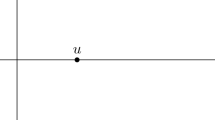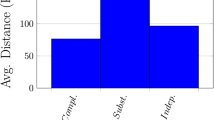Abstract
We show that Rohlfs’s (1974) model is a special case of a spatial monopoly model á la Hotelling (1929) with uniform consumer distribution and quadratic transportation costs, where location is exogenous and the good yields no intrinsic utility. By relaxing these assumptions, we prove that the coordination problem typically thought to affect markets for network goods may not arise in general. Endogenizing location makes it easier for the monopolist to extract consumer surplus but also to cover the entire market. We also show that the main conclusions remain qualitatively unmodified if consumer distribution is triangular.
Similar content being viewed by others
Author information
Authors and Affiliations
Corresponding author
Additional information
revised version received September 16, 2003
Rights and permissions
About this article
Cite this article
Lambertini, L., Orsini, R. Network Externality and the Coordination Problem. JEcon 82, 123–136 (2004). https://doi.org/10.1007/s00712-003-0045-7
Received:
Published:
Issue Date:
DOI: https://doi.org/10.1007/s00712-003-0045-7




